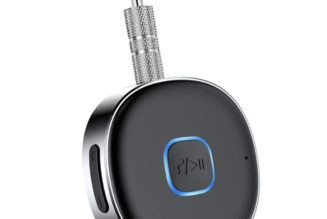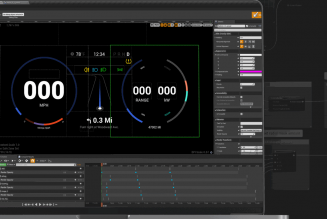The new flagship has been announced alongside a pair of OnePlus noise canceling earbuds.
:format(webp)/cdn.vox-cdn.com/uploads/chorus_asset/file/24333345/OnePlus_11_and_OnePlus_Buds_Pro_2_in_green.jpg)
The OnePlus 11, the latest flagship smartphone from the Oppo sub-brand, has been announced for the Chinese market ahead of its global launch next month. Its feature set doesn’t hint at any major departures from OnePlus’ previous flagships, but the company has opted for a bold new circular design for the phone’s rear camera bump, which its press release says is “inspired by black holes.” Alongside it, OnePlus has announced a new pair of true wireless earbuds, the OnePlus Buds Pro 2.
For the most part, the OnePlus 11’s specs tally with what we’ve come to expect from flagship smartphones in recent years. It’s powered by Qualcomm’s latest high-end processor, the Snapdragon 8 Gen 2, comes with up to 16GB of RAM, and has a 6.7-inch 120Hz OLED display. You get three rear cameras, which are once again Hasselblad-branded.
The OnePlus 11 has a 5,000mAh battery that charges at up to 100W for the Chinese version of the device. That’s up from a maximum of 80W with the OnePlus 10 Pro but a little less than the 150W charging offered by the OnePlus 10T. Based on previous OnePlus releases, US customers are unlikely to get this full 100W charging speed thanks to North America’s 110V sockets, but that shouldn’t make too much of a difference to the number of minutes it takes to charge.
Around back, the phone has three cameras, a 50-megapixel main camera, a 48-megapixel ultrawide, and a 32-megapixel sensor for portrait shots. There’s no mention of a telephoto lens, but you do get a “13-channel multi-spectral light-colour identifying sensor,” which OnePlus ambiguously explains allows the phone to deal with “all photography scenarios.” A spokesperson for OnePlus declined to provide any further information on what this extra sensor does. The three rear cameras are contained within OnePlus’ black hole camera bump.
:format(webp)/cdn.vox-cdn.com/uploads/chorus_asset/file/24333366/OnePlus_Buds_Pro_2_in_green_and_black___landscape.jpg)
Alongside its new phone, OnePlus is also announcing a follow-up to 2021’s OnePlus Buds Pro true wireless earbuds called the OnePlus Buds Pro 2. There are a couple of interesting differences between the two generations. For starters, the Buds Pro 2 use a dual-driver design consisting of 11mm drivers for bass and 6mm drivers for trebles and mids (the original Buds Pro just had the 11mm driver). If handled well, these kinds of dual-driver setups can help sound appear more clear and detailed.
There’s also support for spatial audio, and the buds are equipped with six-axis motion sensors to keep track of the listener’s head position (OnePlus declined to answer questions about which devices this spatial audio feature works with). Unlike their predecessors, the Buds Pro 2 feature user-selectable EQ settings, allowing you to pick between four presets to adjust their sound to your liking. It also supports active noise cancellation, as well as Bluetooth 5.3 LE audio, though there’s no word on support for codecs like AptX Lossless. Battery life is rated at up to 39 hours.
Although both the phone and earbuds will be available to buy in China on January 9th, customers in the rest of the world will have a little longer to wait. OnePlus has previously announced that the global launch of the OnePlus 11 will be on February 7th. It’s a similar launch strategy to what the company used for last year’s OnePlus 10 Pro, which launched in China on January 11th, 2022, and globally on March 31st. In China, the OnePlus 11 will start at ¥3,999 (around $580) for a model with 12GB of RAM and 256GB of storage, rising to ¥4,899 (around $710) for the highest end version with 16GB of RAM and 512GB of storage.









